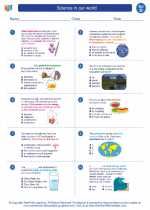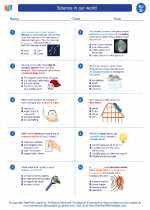Glands
A gland is an organ in the body that synthesizes substances such as hormones, enzymes, and sweat, and releases them for use elsewhere in the body or for elimination from the body. There are several types of glands in the human body, including exocrine glands, endocrine glands, and sweat glands.
Types of Glands
- Exocrine Glands: These glands secrete their products into ducts that carry the secretions to the surface of the body or into body cavities. Examples of exocrine glands include sweat glands, salivary glands, and mammary glands.
- Endocrine Glands: Endocrine glands secrete hormones directly into the bloodstream, which then carries the hormones to target cells or organs. Examples of endocrine glands include the pituitary gland, thyroid gland, and adrenal glands.
- Sweat Glands: Sweat glands are a type of exocrine gland that produce sweat, which helps regulate body temperature and excrete waste products.
Function of Glands
The functions of glands vary depending on the type of gland. Some common functions include:
- Regulating metabolism and growth
- Maintaining fluid and electrolyte balance
- Regulating body temperature
- Producing and secreting enzymes for digestion
- Excreting waste products
Study Guide
Here are some key points to remember when studying glands:
- Identify the different types of glands and their respective functions.
- Understand the role of hormones in the body and how endocrine glands contribute to hormone production.
- Learn about specific examples of exocrine and endocrine glands in the human body.
- Explore the importance of sweat glands in regulating body temperature and excreting waste products.
- Consider the impact of gland dysfunction on overall health and well-being.
Understanding the role of glands in the body is crucial for comprehending various physiological processes and maintaining overall health.
.◂Science Worksheets and Study Guides Fourth Grade. Science in our world
Study Guide Science in our world - 4th gr.
Science in our world - 4th gr.  Worksheet/Answer key
Worksheet/Answer key Science in our world - 4th gr.
Science in our world - 4th gr.  Worksheet/Answer key
Worksheet/Answer key Science in our world - 4th gr.
Science in our world - 4th gr.  Worksheet/Answer key
Worksheet/Answer key Science in our world - 4th gr.
Science in our world - 4th gr.  Vocabulary/Answer key
Vocabulary/Answer key Science in our world - 4th gr.
Science in our world - 4th gr. 

 Worksheet/Answer key
Worksheet/Answer key
 Worksheet/Answer key
Worksheet/Answer key
 Worksheet/Answer key
Worksheet/Answer key
 Vocabulary/Answer key
Vocabulary/Answer key

The resources above cover the following skills:
History and Nature of Science: A student should understand the history and nature of science. A student who meets the content standard should:
Develop an understanding that historical perspectives of scientific explanations demonstrate that scientific knowledge changes over time, building on prior knowledge.
Develop an understanding that scientific knowledge is ongoing and subject to change as new evidence becomes available through experimental and/or observational confirmation(s).